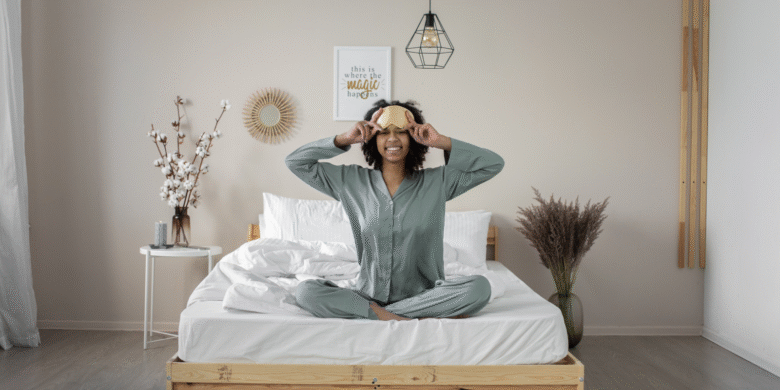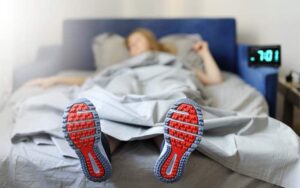In today’s busy world, getting a good night’s sleep is harder than ever. Stress, screens, an unhealthy lifestyle, and irregular sleep schedules can all contribute to disrupted sleep habits. Yet, sleep is essential for our overall health and well-being. Lack of sleep can be detrimental to your health, posture, memory, resistance to disease, and productivity. If you want to sleep better without medication, the good news is that there are safe, natural, and effective ways to do so. This article introduces some sleep tips that are scientifically backed and recommended by health experts.
Develop a regular sleep schedule
Sticking to the same sleep schedule every night is one of the best natural ways to sleep better. Your circadian rhythm is your body’s internal clock that regulates your sleep and wake times. When you go to bed and wake up at the same time every day, your body gets used to a certain rhythm. Over time, falling asleep and waking up becomes easier and more regular. People who stick to this routine are less likely to experience insomnia or daytime fatigue and are more likely to sleep deeply.
Limit exposure to blue light before bed. Electronic devices like computers, smartphones, and tablets emit blue light, which suppresses the production of melatonin, a hormone that regulates sleep. At night, blue light tricks your brain into thinking it’s still daytime. Limiting computer use for at least an hour before bed helps your body produce melatonin and prepare for a good night’s sleep. Many people say that reading a book or using warm lighting in the evening helps them fall asleep faster.
Improve your sleep environment
The bedroom is one of the most important places for sleep. Many things around you can make it difficult to relax and fall asleep. For deep sleep, a quiet, dark room is best. A white noise machine or fan can block out annoying background noise, and blackout curtains can help block out outside light. Temperature is another important factor. Most people sleep best between 15 and 19 degrees Celsius. Investing in a breathable, high-quality mattress and bedding can also improve overall comfort and prevent nighttime awakenings.
Practice relaxation techniques
Stress and anxiety are two of the most common reasons people have trouble sleeping. Relaxation exercises before bed can calm your mind and body, making it easier to fall asleep and stay asleep. Deep breathing techniques can help you relax and lower your heart rate. A common method is to inhale for four seconds, hold your breath for seven seconds, and exhale for eight seconds. Progressive muscle relaxation, which involves tensing and relaxing different muscle groups in the body, can also help reduce stress. Guided meditation and visualization techniques are increasingly used to help you fall asleep. These methods can be found in mobile apps or online websites that offer sleep-related resources.
Pay attention to your diet
The food and drinks you consume can significantly impact your sleep quality. Because caffeine stays in the body for several hours, consuming it in the evening can make it difficult to fall asleep. It’s best to limit your coffee intake after early afternoon. Consuming large amounts of fatty or spicy foods before bed can also make it difficult to fall asleep. While alcohol can make you drowsy initially, it often causes you to wake up multiple times during the night. To sleep better, choose healthy, light snacks and soothing beverages, such as chamomile tea. These can help you calm down and fall asleep more easily.
Exercise regularly
Exercise is a well-known natural way to help you sleep. Being active can reduce stress, burn more calories, and help improve your body’s natural circadian rhythm. Studies show that people who exercise regularly sleep better and fall asleep faster. But the timing of your exercise is important. Brisk exercise right before bed wakes your nervous system and increases your energy levels, which can make it harder to unwind. Light exercises like walking, yoga, or morning stretching are all better for sleep and won’t overstimulate your body.
Comparison Chart: Natural Sleep Techniques vs. Sleep Aids
| Method | Time to Fall Asleep Reduced | Sleep Quality Improvement | Side Effects |
|---|---|---|---|
| Consistent Sleep Schedule | 25–30% | 30–40% | None |
| Reduced Screen Time | 20–25% | 20–30% | None |
| Relaxation Techniques | 30–35% | 35–45% | None |
| Over-the-Counter Melatonin | 40–50% | 25–30% | Drowsiness, Tolerance |
| Prescription Sleep Medications | 60–70% | 40–50% | Dependency, Side Effects |
Source: National Sleep Foundation, NIH Sleep Research, 2024
Frequently Asked Questions
How much sleep do people need?
For optimal health, most people need seven to nine hours of sleep per night. However, individual needs can vary depending on health, habits, and level of physical activity.
Do daytime naps affect falling asleep?
Short naps of 15 to 30 minutes can help you feel more awake and alert. On the other hand, longer naps or naps in the late afternoon can make it harder to fall asleep at night, especially for people who already have sleep problems.
Can I get some extra sleep on the weekends?
Extra sleep can help with short-term fatigue, but regularly disrupting your sleep schedule can harm your overall sleep quality. It’s better to maintain a regular sleep schedule during the week rather than relying on catch-up sleep.
Is it safe to use natural sleep aids like melatonin?
Melatonin pills are generally considered safe for short-term use, but they are not helpful if you have chronic sleep problems. It’s best to consult a doctor or nurse before using a daily sleep aid.
What wakes me up in the middle of the night?
Waking up in the middle of the night can have several causes, such as anxiety, sleep problems, or an uncomfortable environment. By identifying and addressing the cause, you can get a good night’s sleep again.
In short
Getting better sleep naturally is not only natural but also incredibly good for your health. You can achieve deeper, more restful sleep by developing healthy habits, such as maintaining a consistent bedtime, limiting screen time before bed, improving your bedroom environment, and managing stress. These methods are safe, affordable, and effective in the long run. Instead of resorting to sleeping pills or other external aids, a balanced approach can help you regain your sleep and improve your life.
If you’ve tried these natural remedies and are still having trouble falling asleep, it might be wise to consult a doctor to rule out any underlying health conditions. Making sleep a priority is one of the best things you can do for your physical and mental health.




